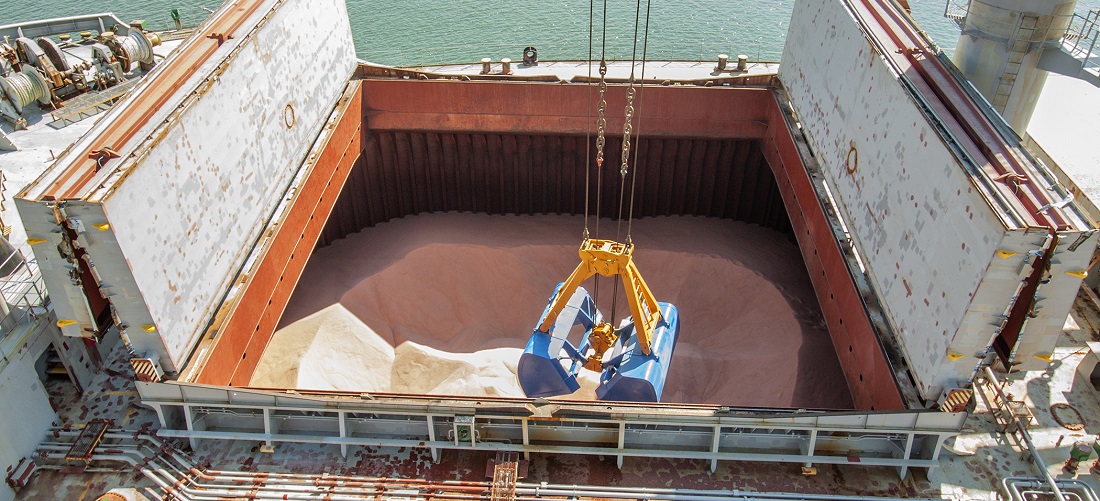
After a year, war still affects fertilizers
Feb, 24, 2023 Posted by Gabriel MalheirosWeek 202310
A year ago, with the outbreak of war in Ukraine, the Brazilian agricultural supply chain entered a hazy scenario. Even high-ranking executives in the fertilizer industry in Brazil adopted a cautious stance when making projections.
It was the first time in decades that the threat of an input shortage appeared genuine. “I had never seen a real risk of supply [of fertilizers] before,” Corrine Ricard, president of Mosaic Fertilizantes at the time, told Valor press agency.
She leads the Latin American arm of the American Mosaic Company, one of the largest global suppliers of fertilizers and one of the sector leaders in Brazil, along with the Norwegian company Yara and the Paraná-based group Fertipar.
The fear of a lack of raw materials used in fertilizer production due to the war had an immediate ripple effect on international prices – and Brazil imports 85% of what it consumes. This reduced the consumption of fertilizers in the country by around 10% last year and compressed the agricultural producer’s margin in MY 2022/23.
Quotations for nitrogenous, potassium, and phosphates, the NPK trio, peaked in March and April 2022, shortly after the start of the war, and exceeded US$ 1,000 per tonne. Since then, prices have fallen by nearly 70%, depending on the nutrient.
On February 10 of this year, a tonne of urea (nitrogenated) was quoted at US$ 363. Potassium and MAP (phosphate) were valued at between US$ 500 and US$ 600 a ton (prices at the port in Brazil).
The agribusiness industry has not yet investigated the direct effect of the increase in fertilizers on food prices in Brazil. But it is possible to assess the impacts at the base of the chain based on the rise in input prices. Fertilizers, for example, weighed more in the direct cost of production.
Operational cost
If this product previously accounted for approximately 35% of the operating cost (expenses for fertilizers, pesticides, seeds, machinery, and labor), it now accounts for up to 50% in the current harvest season (2022/23), depending on the crop. The effects of the war contributed to this being the “most expensive production cycle in history,” as one businessman put it.
In the soybean market, the flagship of Brazilian agro, margins have shrunk by close to 30% in the 2022/23 season compared to the previous one, indicates a survey by the Agro Consultancy of Itaú BBA.
For the coming cycle, however, the perspectives are better. The main reason to expect a 2023/24 harvest with better gains is the reduction in fertilizer prices.
The war brought tension to this market niche as it involved two major global suppliers of the products, Russia and Belarus. The two account for around 40% of the worldwide potash trade. Russia supplies all three nutrient groups (NPK).
In addition to the conflict, the effects of the economic sanctions imposed in 2021 by the US and the EU on Belarus began to be noticed in January 2022 – shortly before the start of the war. The country’s exports began to slow down, adding to the nervousness of chain agents.
Supply
Nonetheless, despite the fear that inflated fertilizer prices almost immediately, agricultural producers in Brazil did not run out of inputs. Russian ships continued to arrive despite the conflict.
Russia, one of the leading suppliers of fertilizers to Brazil in 2022, along with Canada and China, exported 8 million tonnes of NPK to Brazilians last year, down 13% compared to 2021.
Brazil imported about 10% less in 2022, adding up to 38 million tonnes, show data from the Fertilizer Industry Union in São Paulo (Siacesp). The reduction in imports and also in domestic sales occurred as a result of the price boom.
Taking advantage of the “banks” of nutrients stored in the soil, farmers reduced purchases. As a result, sales in the country between January and November last year, the most recent data available, totaled 37.7 million tonnes, down 11% compared to 2021. Sector sources say they expect a rise in deliveries this year.
Source: Valor Econômico
To read the original news report, please access: https://valor.globo.com/agronegocios/noticia/2023/02/24/apos-um-ano-guerra-ainda-afeta-fertilizantes.ghtml
-
Shipping
May, 31, 2024
0
“Green” Ship with 145,600-Ton Capacity Docks at TCP, Marking a Milestone in Sustainable Maritime Transport
-
Ports and Terminals
Apr, 01, 2025
0
Northern Fluminense to Export 3,000 Tons of Soybeans to Russia via Porto do Açu in SJB
-
Vessel Calls
May, 20, 2022
0
Containership calls at Brazilian ports fell 16.05% in April year-on-year
-
Ports and Terminals
Dec, 22, 2023
0
Cattalini Terminais awaits record landing of diesel oil

